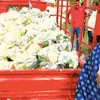Farm to market: Indian farmers struggle to mend losses amid coronavirus lockdown
The nationwide lockdown has resulted in severe labour shortages, transport impediments, and reduced market access, leaving thousands of farmers in the lurch.
The freshly-grown fruits had turned ripe, rabi crops like barley were ready to be harvested, and bright-coloured vegetables were seen dangling from the plants. However, most of these were either left to rot in the farms, or sold at an extremely nominal price in the market.
The nationwide lockdown due to the coronavirus pandemic has resulted in severe labour shortages, transport impediments, and reduced market access, leaving thousands of farmers in the lurch. Though the Indian government made it a point to relax some of the restrictions for the farming sector, the community is still striving to cope with the losses.

Edward was able to harvest only a small part of the produce due to labour shortages.
Thirty-two-year-old Edward L owns a three-acre farm at Gaddige, a small temple town located in the Mysore district of Karnataka. After toiling day and night, he managed to produce an abundant yield of bananas and coconuts this year. But, most of his effort went in vain.
“Despite the bountiful crop, I could not harvest most of the coconuts since all the workers employed in the field went back to their native places. Besides, climbing atop the trees to pick the fibrous drupe is not an easy task, and requires a lot of skill. Sadly, I lost more than 2,000 coconuts. If not for coronavirus, I would have earned at least Rs 30,000 from it. Now, I am scrambling for alternative sources of income to repay my loan,” Edward tells SocialStory.

Farmers across India were left in the lurch after the announcement of the coronavirus lockdown.
According to a report published by the National Sample Survey Office (NSSO), a whopping 70 percent of the country’s population is known to be dependent on agriculture. The strict measures undertaken to encourage social distancing amid the pandemic, though justified, have left a majority of the farmers looking for help or other sources of income.
Stumbling blocks along the way
Whether it is the sugarcane growers in Meerut and Saharanpur or the banana cultivators in Trichy or even the pumpkin farmers in Odisha, the COVID-19 lockdown has taken a toll on the farmers’ income.
Farmers who grow fruits and vegetables are the most distressed, considering that the shelf life of these commodities is usually very short. While commodities like tomato, brinjal, cucumber, grapes, etc., last anywhere between two and four days, produce such as apple, garlic, carrot, onion, among others, remain intact for a few weeks.
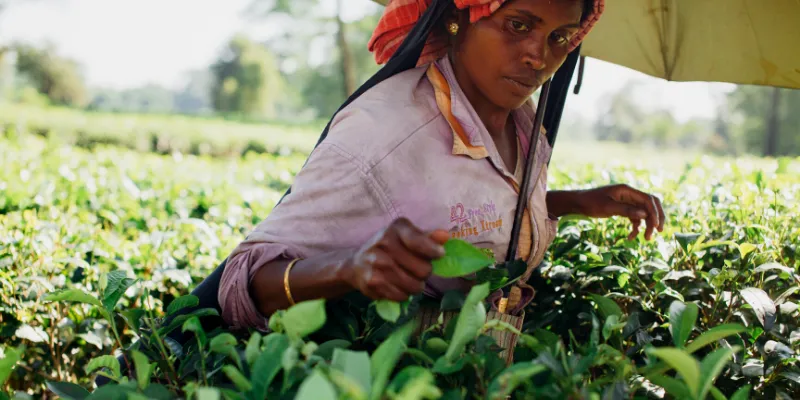
A farm worker at a tea garden.
Furthermore, farmers cannot sell their produce owing to the fact that the Agricultural Produce Market Committees (APMC) and other wholesale mandis are either shut down or working under restrictions.
Puneet Sethi, Co-founder of Pune-based agritech startup Farmpal, elaborates on the state of affairs in and around western Maharashtra.
“The Vashi APMC near Mumbai announced its closure due to the fear of coronavirus. Pune’s Gultekdi market, too, confined itself. A lot of farmers in the country who have medium to large landholdings cultivate everything in bulk, year after year. And, since their supply chains were disrupted, they lost heavily,” he says.
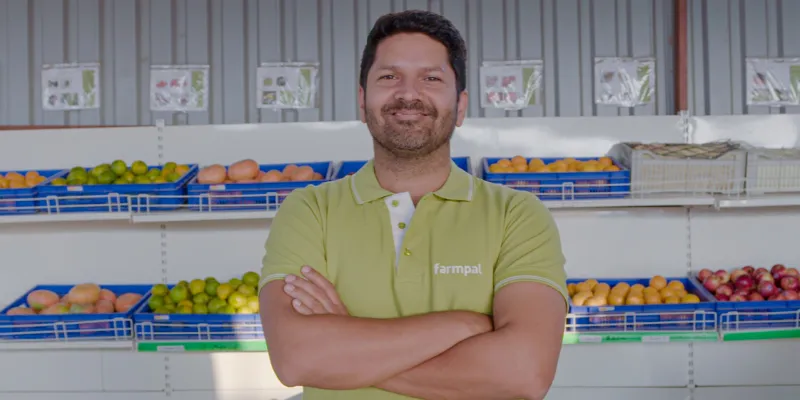
Puneeth Sethi, Co-founder, Farmpal
Another hurdle that the farmers are facing is the absence or limited transport facilities. The entry and exit points of several locations have been sealed to contain the transmission of the virus, resulting in holding back of the staples harvested.
“Logistics plays a crucial role in delivering products to consumers, be it any industry. It becomes more significant when it comes to agro-products, owing to its perishable nature. Farmers were stranded because all the means to distribute their yield stayed confined. Every year, the farmers in Nashik produce tons of grapes, eyeing the global market. With exports being curtailed, they were compelled to sell it at a low price of Rs 15 per kilogram,” Puneet adds.
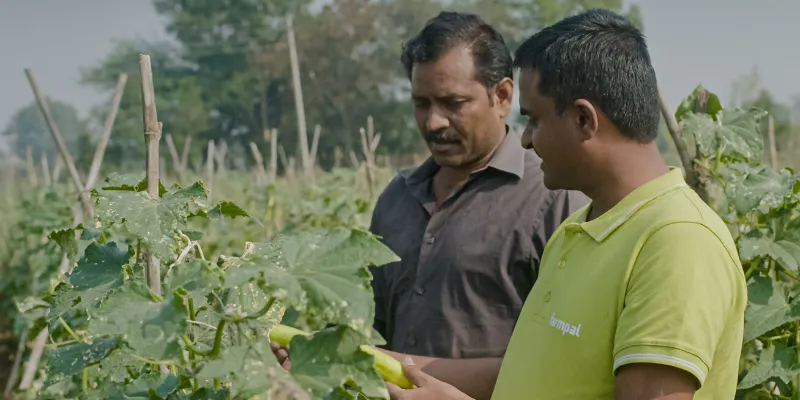
Karan Hon, Co-founder of Farmpal interacting with a farmer.
During the harvesting season, daily wage labourers are the ones who generally harvest the produce for the farmers and load the trucks. However, many of them started going back to their hometown as soon as the lockdown was declared.
Sharing an account of his interaction with watermelon farmers, TV Gopinath, Founder and Director of Bengaluru-based farmer producer company Raitha Mitra, says,
“A host of farmers across Tamil Nadu, Karnataka, and Andhra Pradesh planted watermelons in their land last November, hoping to gain from it this summer. Now, the fruits are simply ageing and withering away in the fields with nobody to harvest. A few others who got lucky are selling it at a dime – Rs 6 per kilogram.”
A helping hand to get the better of COVID-19
The financial support provided by the Indian government to the ailing farmers during such unprecedented times is surely a silver lining in the clouds. Of the slew of aids provided, the extension of both Interest Subvention (IS) and Prompt Repayment Incentive (PRI) till May 31, 2020, on short-term crop loans up to Rs 3 lakh, is deemed to be the most effective.
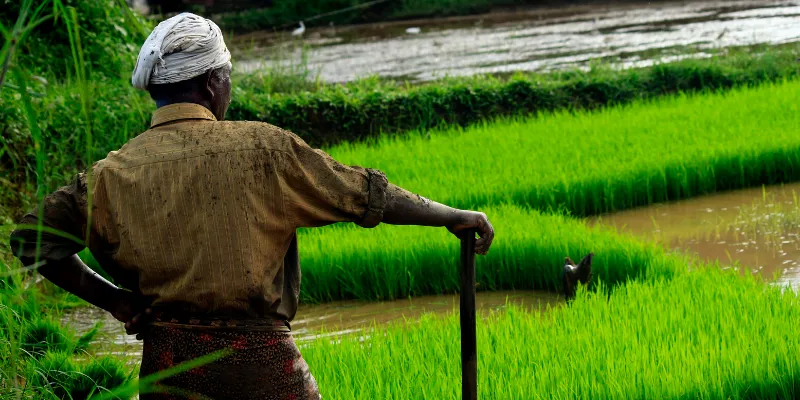
The government has announced a few relief packages for farmers to cope with the losses.
The move is not only helping farmers repay their loans without attracting penalties, but is also enabling them to gain an interest of four percent on timely repayment.
Additionally, the government also announced cash transfers under the PM-KISAN scheme as a front-load to about 8.69 crore farmers, which guarantees payment of Rs 6,000 per farmer annually.
Despite these relief measures, many of them consider it to be inadequate.
“The government needs to be more prepared for pandemics and catastrophes like this. Setting up cold storage facilities, subsidising farm inputs, and incentivising local communities to establish food grain banks, are some steps that can be taken to prevent a crisis from blowing out of proportion in the future,” says Krishna Prasad, Director, Sahaja Samrudha, a Bengaluru-based organic farming company.
Moreover, many agritech startups, as well as farmer producer companies, are doing their bit, along with the government.
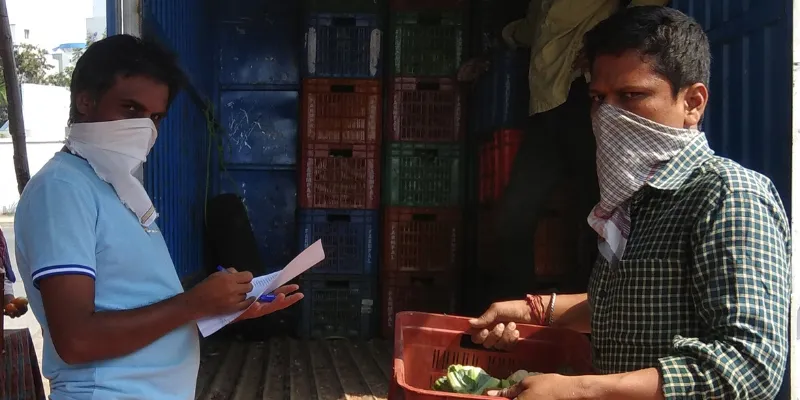
The agri-tech startup Farmpal has set up collection centres for farmers to offload their produce.
With a view to assist farmers in maintaining their daily income and provide consumers with easy access to fresh produce, the agritech startup Farmpal has built collection centres across Maharashtra, within a distance of four kilometres of most farms. This has given farmers the option of offloading the produce at the centre themselves or getting it done on request from the startup.
Several farmer producer organisations are also assisting farmers voluntarily by actively looking for channels to export and market fruits, vegetables, and food grains.
According to these struggling farmers, as the lockdown eases in due course of time, they may find some respite. However, given the current circumstances, it is not a bed of roses for the farming community, with many finding it difficult to make ends meet.
Edited by Suman Singh


